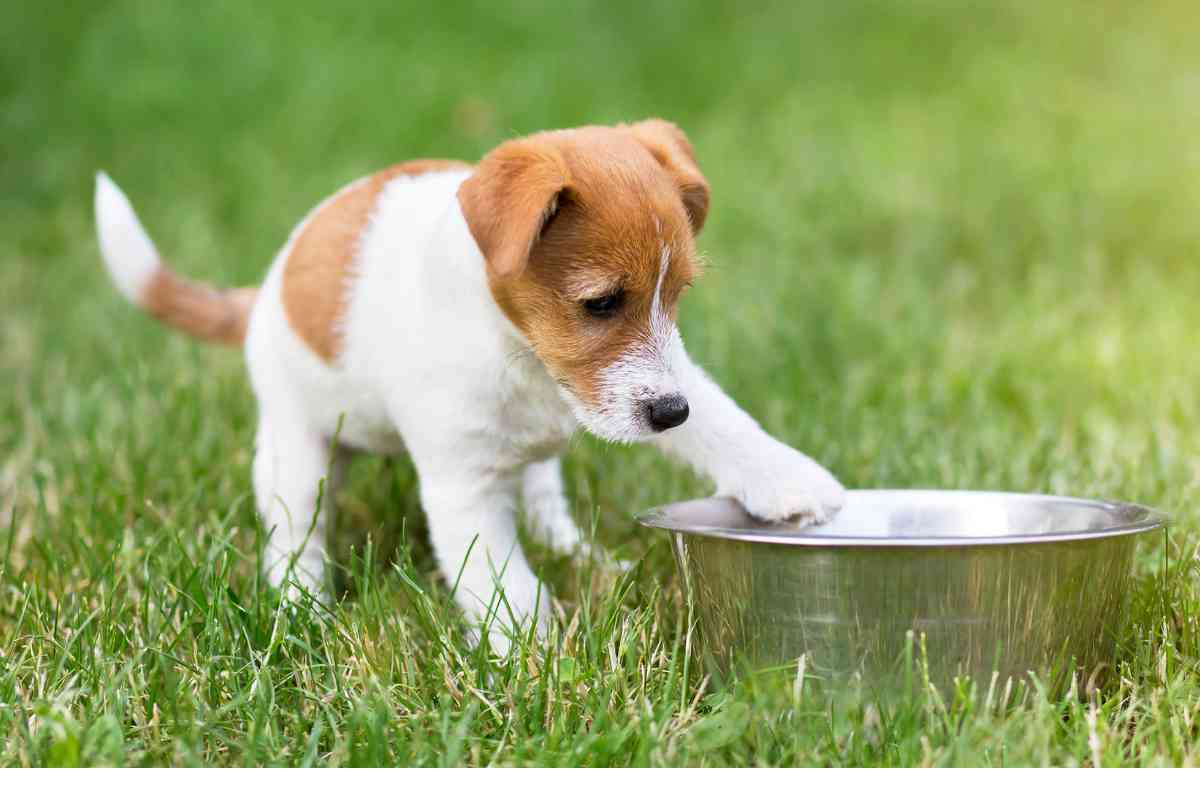What Happens If a Puppy Is Weaned Too Early?
Weaning is a key milestone in a puppy’s life, transitioning from mother’s milk to solid food. This period is crucial for their growth, encompassing significant developmental and social learning stages. The recommended weaning age is typically around 7 to 8 weeks. Early weaning might be necessary sometimes, but it could impact the puppy’s health, behavior, and overall development.

Related Post! How Much Water Should a 13-Week Puppy Drink?
What Happens If a Puppy Is Weaned Too Early?
Premature weaning can disrupt the nutritional intake of puppies and deprive them of essential antibodies in the mother’s milk. It also hinders learning critical behaviors and social cues from the mother dog and littermates, potentially leading to behavioral problems and poor socialization skills.
Understanding weaning’s nuances is crucial for anyone caring for newborn puppies, including breeders, vet professionals, and new owners. Adequate knowledge of proper weaning practices can ensure the development of healthy and well-adjusted adult dogs.
Key Takeaways
- Proper weaning is fundamental for a puppy’s growth and development.
- Early weaning can affect nutrition and overall health.
- Premature weaning may impact behavioral growth.
Detailed Weaning Process
Weaning is more than a dietary shift; it’s integral to a puppy’s development. The ideal weaning starts when puppies are around three to four weeks old, as they begin to eat solid food. Early weaning can lead to health issues such as inadequate nutrition and weakened immune systems. This phase is also intertwined with behavioral development, as puppies learn vital social behaviors from their mother and siblings.
Related Post! What Time Of Day To Feed Your Puppy
Stages of Weaning and Puppy Development

The transition from nursing to solid food should be gradual, concluding around eight weeks. Initially, introduce a gruel mix of high-quality puppy food with milk or water. This supports not just their appetite but also their training and establishment of eating routines.
Week – Food Type
- 3-4: Gruel
- 5-6: Softened Puppy Food (click the link to find out more about How Often 5 Week Old Puppies Should Eat)
- 7-8: Dry Puppy Food
Related Post! Switching Your Puppy From Puppy Food To Dog Food: The Ultimate Guide
Monitoring their growth and weight is essential during weaning to ensure they receive a balanced puppy’s diet. This process is integral to their long-term wellbeing, laying the foundation for good health and behavior.
Consequences of Premature Weaning
Puppies weaned too early face several health challenges. Their bodies, still developing, struggle with the transition to solid foods. This can lead to gastrointestinal issues like diarrhea and vomiting. Such symptoms are not only distressing but can also cause dehydration and malnutrition. Consequently, these young pups may have a weakened immune system, making them more vulnerable to infections and diseases.
Key Health Risks
- Diarrhea and Vomiting
- Malnutrition
- Weakened Immune System
Behavioral and Social Implications of Early Weaning
Beyond physical health, early weaning can profoundly impact a puppy’s behavior and social development. Puppies that are weaned too early often miss essential socialization periods with their mother and littermates. This lack of interaction can lead to a range of behavioral issues, such as aggression, anxiety, biting, and destructive behavior. They may also exhibit heightened separation anxiety, struggling to cope with stress due to inadequate early life experiences.
Behavioral Concerns
- Aggression
- Anxiety and Separation Anxiety
- Biting
- Destructive Behavior

Conclusion: The Vital Role of Proper Weaning in Puppy Development
In summary, proper weaning is crucial for a new puppy, particularly when transitioning from a shelter or breeder’s kennel to a new home. This process ensures the puppy receives essential nutrients and supplements, fostering a balanced diet. Veterinarians and kennel clubs emphasize avoiding early separation from moms, as it can lead to health problems and behavioral issues.
For those adopting from a rescue organization or interested in specific breeds, understanding weaning is key. It’s about ensuring the puppy’s overall well-being, including proper potty training, adapting to toys, and managing puppy teeth growth. Proper weaning, by providing the right guidance and formula, helps prevent distress and destruction, paving the way for a healthy, well-adjusted dog.